The Untold Tragedies Of Dinah Washington, Queen Of The Blues
There’s something special about the music from the 1930s, 40s, and 50s, long before auto-tune and studio effects changed the industry. When you listen to tracks from that era, you know the voices are authentic.
A few singers stand out for their ability to evoke goosebumps with their powerful voices, and Dinah Washington is at the top of that list. Her voice, full of soul and emotion, connects deeply with listeners, making her sound timeless and unforgettable.
Despite her incredible talent, surprisingly little is known about Washington’s personal life.
Clive Otis, the Mercury Records director who produced her classic “What a Difference a Day Makes,” said that the power of her voice stemmed from an incredibly difficult life, one she rarely discussed.
She Dinah Washington grew up in extreme poverty
One of the main sources of information on Dinah Washington’s personal life is her longtime friend LaRue Manns.
In James Haskins’ biography “Queen of the Blues: A Biography of Dinah Washington,” Manns shared the tough realities of Washington’s childhood on the South Side of Chicago.
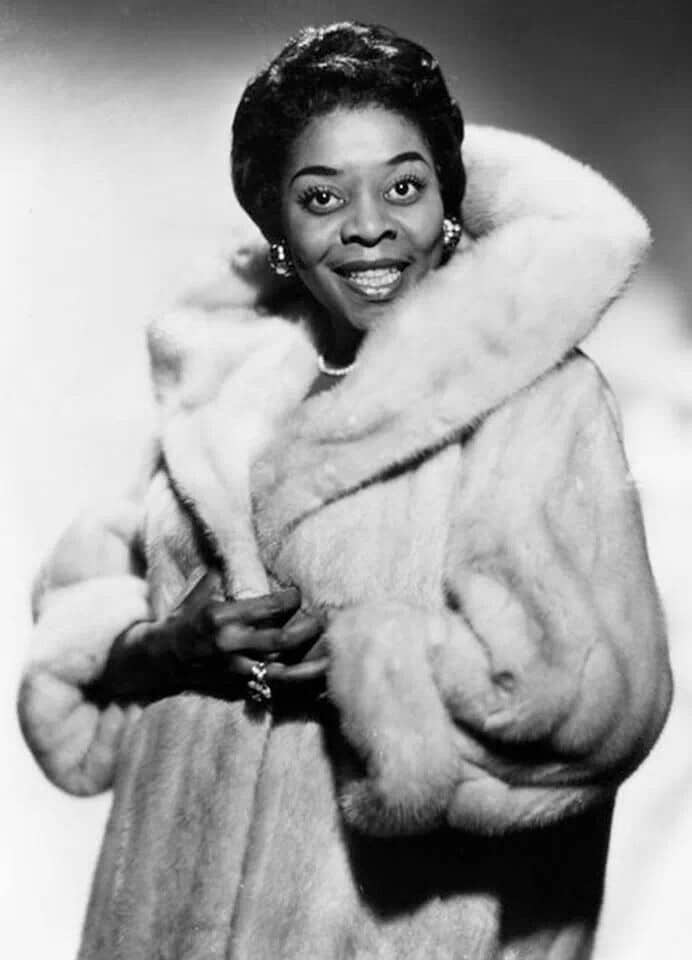
During the Great Depression, Dinah’s family lived in extreme poverty. “They were living in the projects, and there were rats and roaches and they didn’t have enough food or enough clothes to wear,” Manns explained.
Moving from Alabama to Chicago also meant they had no community support.
Manns told a story that showed just how bad things were. Dinah and her mother had to share one pair of stockings.
Dinah would wash her mother’s stockings so she could wear them if her mother didn’t need them. Starting school made Dinah even more aware of their poverty, and this experience stayed with her for life.
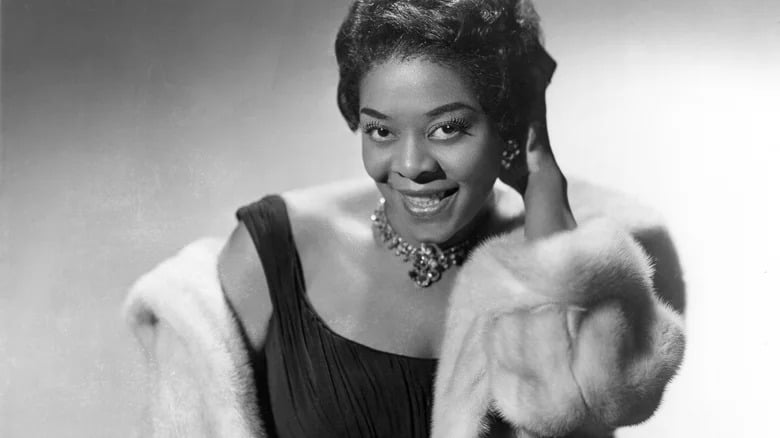
As Dinah Washington became a star, she made sure to buy lots of stockings. This was her way of ensuring she never had to wear someone else’s stockings again.
Manns remembered asking her about this habit, and Washington simply said, “I want plenty of stockings. I don’t ever want to have to wear somebody else’s stockings.”
Her relationship with her mother was often difficult and misunderstood
In 1999, the theater production “Dinah Was” premiered in Chicago, offering an inside look at Dinah Washington’s life. However, like many adaptations from real life to performance, some details were not entirely accurate.
Washington’s sisters, Clarissa Smith and Estrellita Dukes, told the Chicago Reader that certain aspects, especially the relationship between Washington and her mother, Alice, were misunderstood and exaggerated.
One major misconception was the nature of the relationship between Washington and her mother. While it’s true that they often didn’t see eye to eye, particularly regarding Washington’s lifestyle choices, it wasn’t an outright conflict.
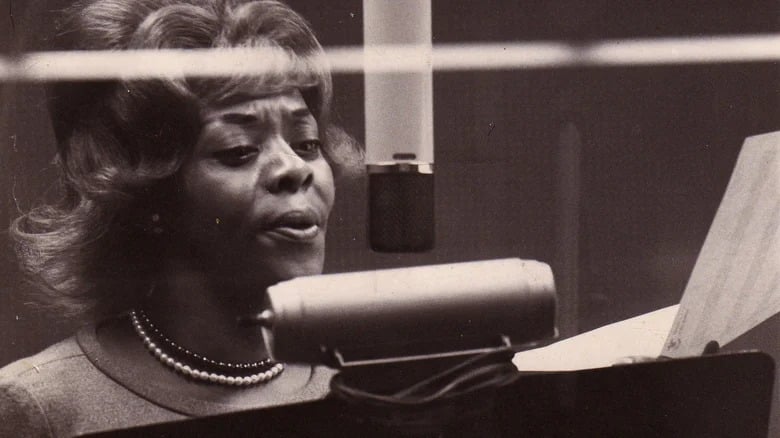
When Dinah Washington became successful, she bought a house for her mother. Dukes explained,
“It’s true we were a religious family, and my mother never really reconciled herself to the fact that Ruth stopped singing in the churches. My mother didn’t approve of Ruth’s lifestyle — the drinking, swearing, husbands. But just because you don’t get along with someone doesn’t mean you don’t love them.”
The biography “Queen of the Blues” by James Haskins shows that Dinah Washington’s relationship with her mother, Alice Jones, was difficult from an early age. Alice was very religious and often judged Washington harshly, making her feel like she could never do anything right.
Despite this, Washington always ensured her family was provided for. When she passed away just before Christmas, her sisters found their gifts carefully wrapped and ready for the holidays.
She was never comfortable in her own skin
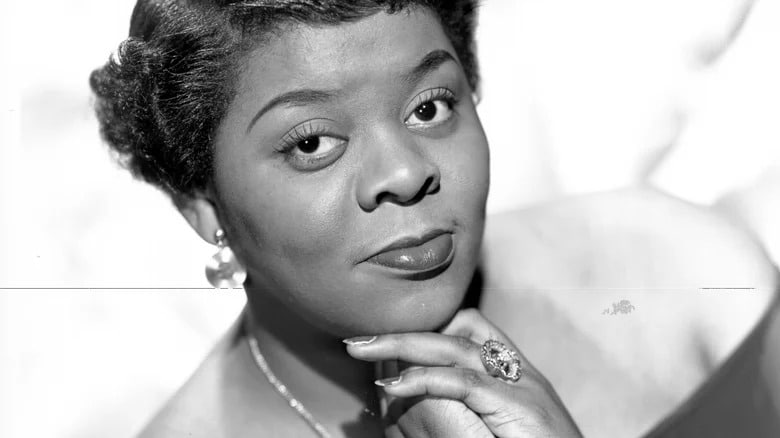
Dinah Washington faced harsh criticism throughout her life, and it started at a young age. As a child, she was ridiculed for her skin color and condition. When she began performing, the scrutiny intensified.
She was often told she didn’t fit the era’s standard of feminine beauty. According to James Haskins’ biography, “Queen of the Blues,” even her bandmates largely ignored her.
Her longtime friend LaRue Manns revealed that Washington always dreamed of being something else. This feeling worsened when magazines described her as “plump” and “good-natured.”
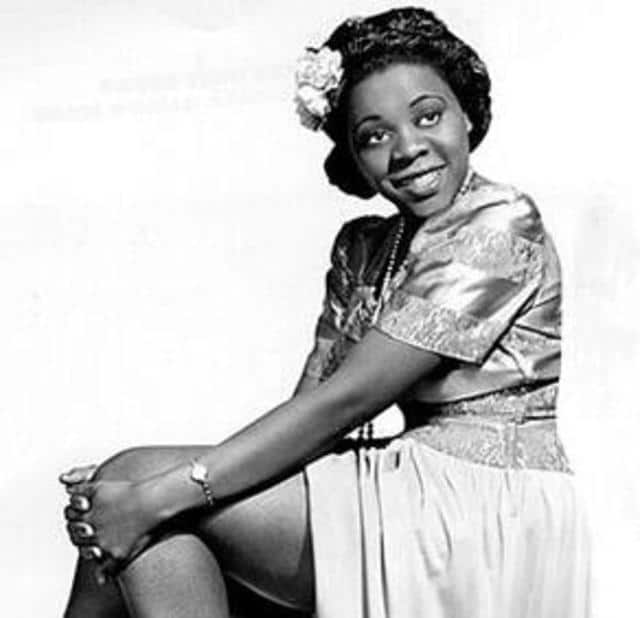
This led her to a harmful cycle of dieting, prescription pills, and self-administered mercury injections. Manns recalled that she would lose several dress sizes in hours, but the side effects included insomnia and severe mood swings.
Those interviewed by Haskins couldn’t agree on the full impact of Dinah’s weight fluctuations and insecurities, but they noted she gained weight as she traveled and toured. In many cities, she couldn’t eat at good restaurants simply because she was Black.
Life on the Chitlin’ Circuit involved grueling schedules and relentless travel
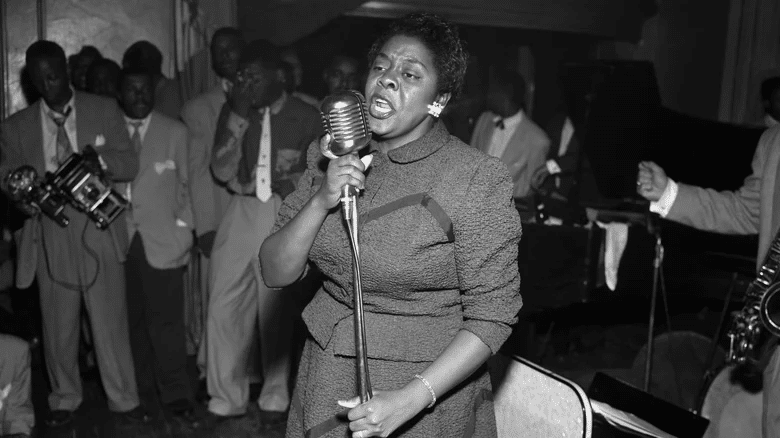
Even when Dinah Washington started gaining recognition for her voice, life was far from easy. To make ends meet, she had to maintain a grueling schedule.
According to James Haskins’ biography “Queen of the Blues,” Washington and her band averaged 100,000 miles annually, spending months on the road. Most of their gigs were one-night shows, requiring constant travel and nightly performances.
Most of their performances were on the Chitlin circuit, a network of theaters, nightclubs, and churches where Black performers could showcase their talents during segregation.
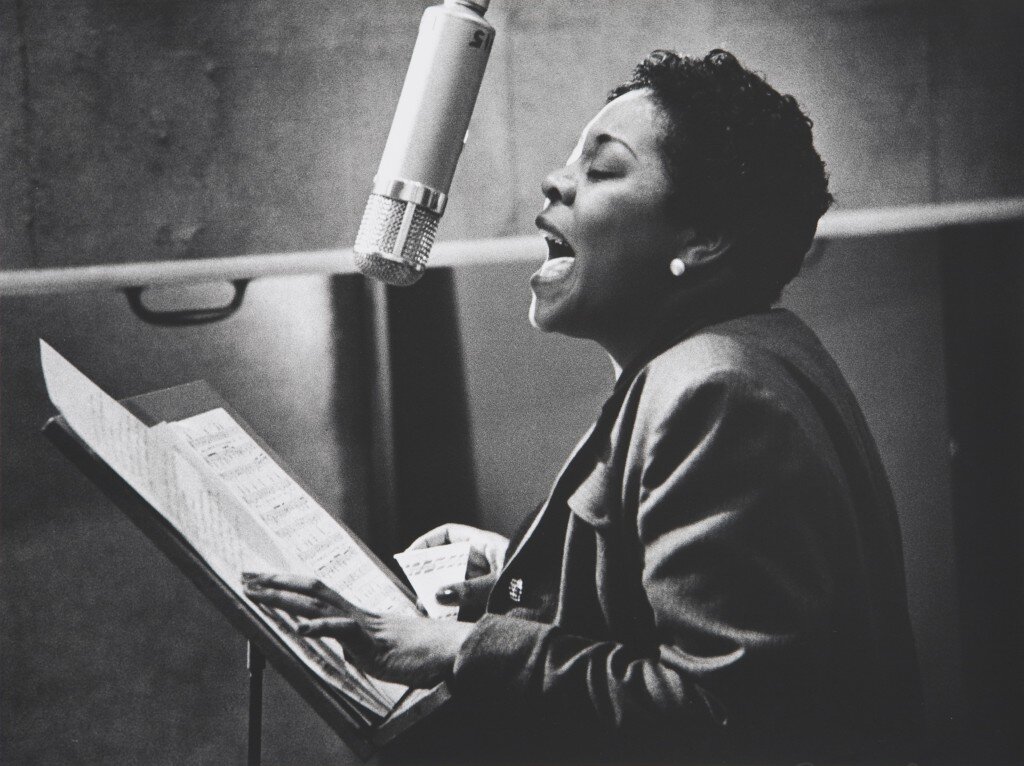
While these venues provided a platform for getting noticed and making a name, the conditions were tough.
Performers were often unpaid or paid only in food, had to play multiple shows a day, and then drive to the next venue. They sometimes slept in cars and faced harassment from law enforcement.
James Brown, for instance, spent 51 weeks a year on the road and once performed 37 shows in 11 days.
Alcohol, overwork, and depression created an inescapable cycle of despair
Patti Austin, her god-daughter, once described Dinah Washington as having “a heart like the Grand Canyon.” As Washington’s career took off and she started making money, she was known for helping anyone in need.
However, this generosity came at a cost. According to James Haskins, her debts kept growing as she supported friends, family, and a troupe of musicians.
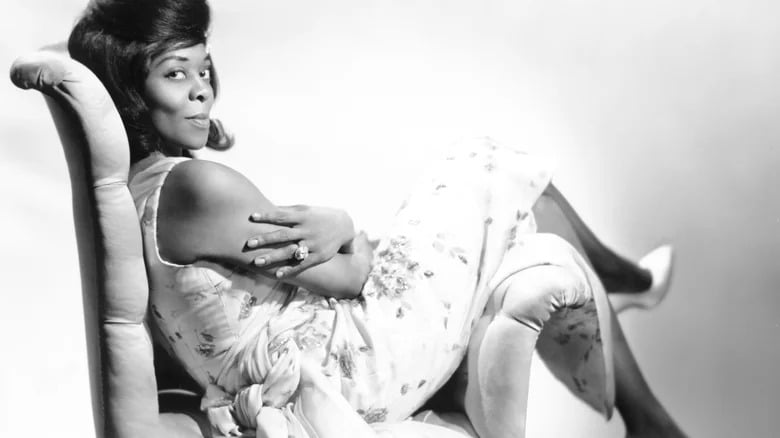
She also spent heavily on clothes, jewelry, hairdressers, and other staff, always ready to help out in a family emergency or sudden need for cash.
At one point, Washington was diagnosed with a strained larynx and advised to take at least three weeks off to heal. Unfortunately, she couldn’t afford the downtime and never fully recovered.
This led to a dependence on alcohol, particularly cognac, which became a constant in her life, along with a struggle with depression.
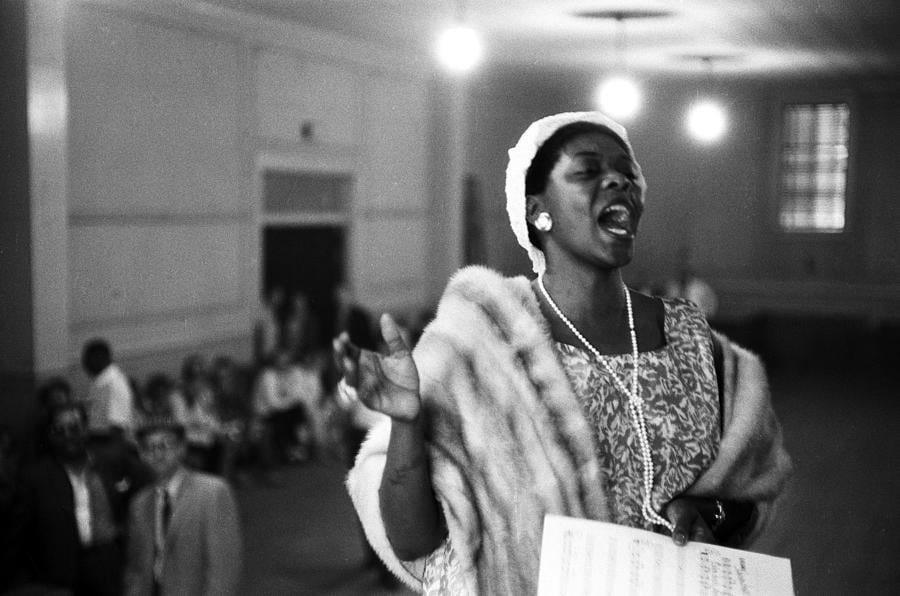
Her closest friends were often unaware of the severity of her mental health struggles. LaRue Manns recounted finding suicide notes that Washington had left behind, but she never fully understood what was happening.
Washington’s erratic behavior, such as firing those close to her and then acting as if nothing had happened, left her friends and family uncertain about how to help her. They were often left wondering if something was truly wrong or if she was just acting out.
Her search for happiness led to many marriages, often ending in disappointment
No one is entirely sure how many times Dinah Washington was married, but it is generally agreed to be between seven and nine times. Her first marriage at 17 lasted only three months. Washington later said she married him simply to get away from home.
By 1957, Washington had ended her fourth marriage. In an interview with The Pittsburgh Courier, she explained that her marriages failed because she sought love, security, and a family, but her husbands couldn’t provide what she needed.
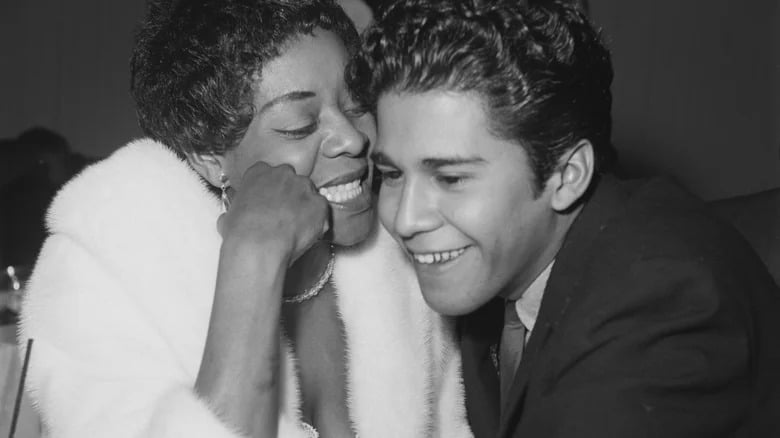
Patti Austin described Dinah Washington as taking great pleasure in luring men away from their wives, hastening divorces, and then proposing to them.
Austin remarked, “She also had a big ego… She also loved to marry somebody else’s husband. She bought a lot of divorces and paid for more child support than anybody can think of. It was a great challenge to take somebody else’s man.”
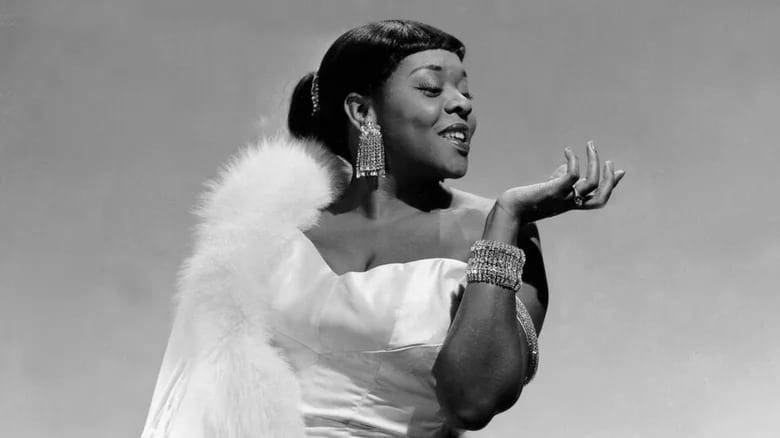
Her shortest marriage to Walter Buchanan lasted just eight weeks. She promoted Buchanan, a bass player, to bandleader of “Walter Buchanan’s Orchestra,” but soon realized he saw her as a means to an end.
During a phone call, she overheard Buchanan joke about needing a new car with someone who advised him to stay with her to get money. Infuriated, she demanded a divorce and Buchanan didn’t get his alimony after she revealed the conversation in court.
She tragically died at a very young age
Dinah Washington died in 1963 at just 39 years old. The news was surprisingly buried on page 79 of The New York Times.
She had spent the evening watching TV with her husband, Dick Lane, and they were planning a big family Christmas. Lane discovered her unconscious body when the TV woke him. An autopsy revealed she had died from an overdose of alcohol and diet pills.
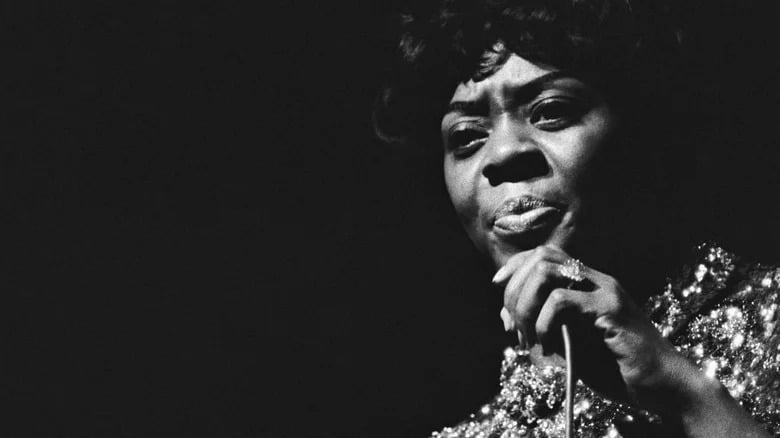
Her friend LaRue Manns described the initial shock. Neither she nor Washington’s mother believed the news at first.
Manns recalled, “As the day went on, it finally began to hit me. I kept thinking that if I’d been out there… I had just had the doctor send out a new order of pills and they had just arrived.”
Manns believed it was an accident as there weren’t many pills missing.
Around 30,000 people attended Washington’s funeral in the freezing Chicago winter to pay their respects to the 39-year-old singer known for her incredible voice.

